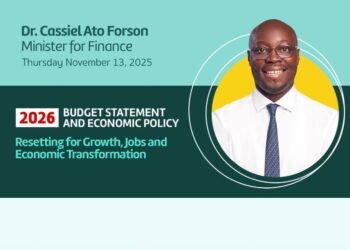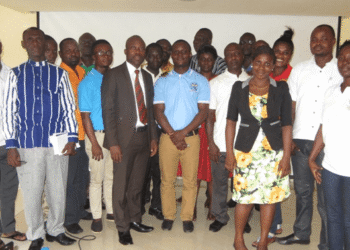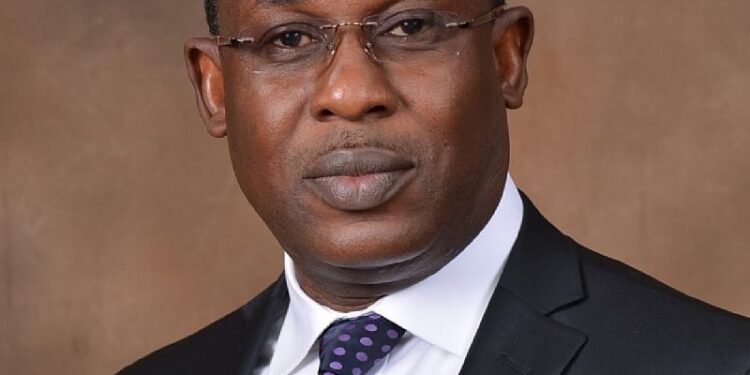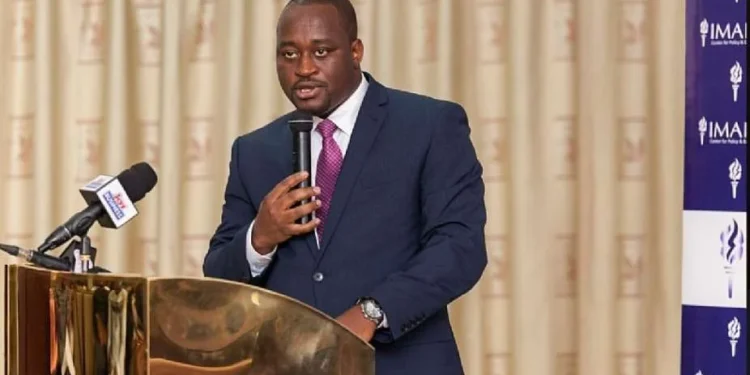Finance Minister Dr. Cassiel Ato Forson has expressed strong confidence in Ghana’s economic trajectory, assuring that the gains recorded over the past year are both measurable and sustainable.
Speaking during a post-budget media interview, the Minister said the 2026 Budget was deliberately crafted to consolidate recent progress, stimulate job creation, and strengthen social protection while maintaining fiscal discipline.
Reflecting on the country’s improved macroeconomic indicators, Dr. Forson declared that “the numbers… don’t lie,” insisting that the results achieved so far testify to sound policy choices.
“Clearly, the numbers speak for themselves. The gains we have made are feasible and measurable. Toss it, roast it—in the end, you can see the outcome of our policies.”
Finance Minister Dr. Cassiel Ato Forson
The statement captured his confidence that the real sector response to ongoing reforms validates government efforts to stabilise and revive the economy.
He acknowledged the contribution of Ghanaians whose resilience and sacrifices had made the recovery possible, noting that the time had come for a carefully managed easing of austerity.

Loosen up Sustainably, Create jobs, and Preserve Growth
According to him, the government’s strategy is to “loosen up sustainably, create jobs, preserve growth, and allow growth to go into the real sector,” emphasising that this approach would be underpinned by prudent investment and the elimination of wasteful expenditure.
“We will invest prudently by cutting waste and directing the waste to support investment. That is where we are going,” he stressed. The 2026 Budget draws heavily on a year of notable macroeconomic improvements.
According to data from the 2026 Budget and government assessments, the economy expanded by 6.3 percent in the first half of 2025, up from 5.1 percent in the same period of 2024. Growth was broad-based, led by an 8.8 percent expansion in the services sector—up significantly from 3.2 percent the previous year.
Agriculture also posted strong gains, growing by 6.0 percent compared to 2.9 percent in 2024, driven by increases in crops, livestock, and fishing. Industry grew by 3.2 percent, and manufacturing, which had stagnated in 2024, rebounded to a 6.3 percent growth rate.
Dr. Forson explained that these improvements reflected growing household confidence, with total consumption expenditure rising by an average of 6.7 percent in the first half of 2025, up from 5.4 percent in 2024.
Exports also strengthened, increasing at an average of 11.5 percent during the period. He added that these figures demonstrate both domestic resilience and the government’s deliberate efforts to stimulate economic activity.

Accompanying the surge in growth is a sharp decline in inflation. Headline inflation dropped from 23.8 percent in December 2024 to 8 percent in October 2025, marking the lowest inflation rate since mid-2021 and the tenth consecutive month of decline.
Monetary policy has responded accordingly, with the Bank of Ghana reducing the policy rate from 28 percent to 21.5 percent. Dr. Forson insisted that this disinflation path reflects restored confidence in economic management: “We are on the right path. The story now is how to sustain the gains.”
Fiscal indicators have also improved significantly. The primary balance (on a commitment basis) recorded a surplus of 1.6 percent by September 2025, a dramatic turnaround from the 3.0 percent deficit posted in 2024.
The Minister emphasised that this performance exceeded expectations and signalled a return to fiscal discipline. Additionally, Ghana has moved from a high risk to a moderate risk of debt distress—a development he described as “a major milestone on the path to debt sustainability and creditworthiness restoration.”
Protecting Vulnerable Groups
Even as the economy stabilises, Dr. Forson said the government remains committed to protecting vulnerable groups. He highlighted increases in key social protection allocations, including higher budgets for the Livelihood Empowerment Against Poverty (LEAP) programme and the School Feeding Programme.
He also announced an adjustment in the District Assemblies Common Fund allocation for persons with disabilities, increasing it from three percent to five percent. “We are using part of the resources to buy motorised wheelchairs, to support people with disability,” he said, describing it as part of broader efforts to ensure inclusive development.

The Minister stressed that sustaining progress remains the central task moving forward. He observed that the budget was designed to strike the right balance between consolidation, stability, growth, and job creation.
“We need to have a nice balance between consolidation, stability, and growth, particularly job creation. And that is the next level I’m going,” he noted. The government, he assured, would do “whatever it takes” to maintain momentum.
Concluding the interview, Dr. Forson expressed optimism about the country’s medium-term prospects. He projected that by the same time next year, the government would be presenting evidence of continued stability and expanded growth.
READ ALSO: Ghana’s Problem is Waste”: Ato Forson Sets Sights on Decisive Turnaround Reforms























